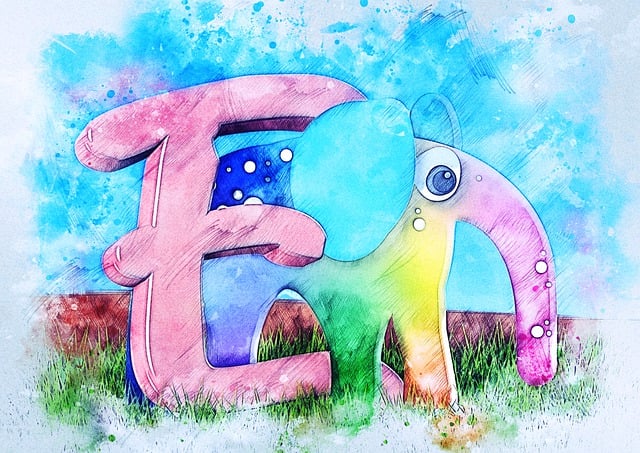Professional UK Play Scripts and Screenplays translation services navigate cultural subtleties, idiomatic expressions, and figurative language to preserve essence and engage global audiences. They employ skilled linguists, advanced tools, and deep cultural knowledge to maintain humor, tone, and storytelling intent. Quality assurance processes ensure accuracy, consistency, and authenticity across diverse media types.
In the world of international storytelling, translation plays a pivotal role in connecting diverse audiences. When it comes to UK play scripts and screenplays, maintaining the original tone and cultural nuances is an art. This comprehensive guide explores the intricacies of translating written content, from understanding cultural subtleties to preserving humor and capturing character voices accurately. Discover how professional translation services navigate idioms, phrasal verbs, literary devices, and contextual sensitivity to deliver captivating stories that resonate globally.
- Understanding Cultural Nuance in Translation
- Preserving Humor and Wit Across Languages
- Capturing Tone: Dialogue and Character Voice
- Idioms and Phrasal Verbs: Challenges and Solutions
- Literary Devices: Metaphors, Similes, and More
- Contextual Sensitivity: Localizing Settings and Culture
- Technical Precision: Terminology and Jargon
- Reader Engagement: Keeping Audiences Captivated
- Quality Assurance: Ensuring Consistency and Accuracy
Understanding Cultural Nuance in Translation

Translation isn’t just about exchanging words from one language to another; it’s an art that demands a deep understanding of cultural nuances. When it comes to UK play scripts and screenplays, this becomes even more critical. A single phrase can carry different meanings across cultures, and what seems harmless in one language might be offensive or misinterpreted in another.
Professional translation services for UK plays and screenplays must therefore pay close attention to cultural context, idioms, and figurative language. This involves not just translating words but also ensuring the essence and intent of the original work are preserved. It’s about capturing the soul of the story while respecting the cultural boundaries of the target audience, thus creating a seamless and authentic experience for viewers or readers worldwide.
Preserving Humor and Wit Across Languages

Maintaining humor and wit in translation is a delicate task, especially for UK play scripts and screenplays. The art of translation goes beyond simply converting words from one language to another; it involves capturing the essence and cultural nuances that make a text engaging. When it comes to humor, subtle plays on words, puns, and cultural references often lose their impact in translation. Professional translation services specializing in UK play scripts and screenplays employ skilled linguists who understand this challenge.
They leverage advanced tools and extensive knowledge of both source and target cultures to preserve the comedic timing and intellectual depth of the original work. This meticulous approach ensures that the translated script retains its ability to make audiences laugh or think, regardless of their linguistic background. Whether it’s a classic comedy or a contemporary play, preserving humor across languages is crucial for creating an authentic and enjoyable experience for international audiences.
Capturing Tone: Dialogue and Character Voice

When translating UK play scripts or screenplays, capturing the original tone is paramount to ensure the translated work resonates with audiences. Tone is a crucial element in storytelling, especially when it comes to dialogue and character voice. Each character should have a distinct voice that reflects their personality, age, background, and emotional state. This requires a translator who understands not just the language, but also the subtle nuances of tone and style.
Effective translation goes beyond word-for-word substitution; it involves adapting the script to the target culture while preserving the original intent and humour. For instance, puns or cultural references in the dialogue might need creative reinterpretation to land with the same effect in a different language. Professional translation services specialising in UK play scripts and screenplays often employ translators who are native speakers or have deep cultural knowledge, ensuring that the translated dialogue sounds natural and authentic.
Idioms and Phrasal Verbs: Challenges and Solutions

Idioms and phrasal verbs pose unique challenges in UK play scripts and screenplays translation services. These expressions are deeply rooted in cultural contexts, often relying on nuances of language and shared experiences that may not have direct equivalents in other languages. For instance, a phrase like “it’s raining cats and dogs” doesn’t translate literally but conveys intensity of rainfall.
To overcome these challenges, professional translators need to be linguistically adept and culturally sensitive. They employ creative solutions like finding similar expressions with comparable meanings or explaining the idiom’s context to maintain its original intent. Tools like glossaries and style guides can aid in consistency. Additionally, collaborating with native speakers or cultural experts ensures that the translated script accurately reflects the original tone and humor, making it a seamless fit for global audiences.
Literary Devices: Metaphors, Similes, and More

Maintaining original tone in translations, especially for creative works like UK play scripts and screenplays, involves a deep understanding of literary devices. Metaphors and similes are powerful tools that shape the narrative’s emotional resonance and aesthetic appeal. A skilled translator must not only grasp these figures of speech but also find equivalent expressions in the target language that capture their essence without losing nuance or cultural context.
For instance, a metaphor that evokes a specific sense of place or time in the original might require a different approach in translation to ensure it translates into a similarly vivid image in the reader’s mind. This delicate balance ensures that the translated text not only conveys the meaning but also retains the artistic intent and emotional impact, making it a seamless part of its new cultural landscape.
Contextual Sensitivity: Localizing Settings and Culture

When translating UK play scripts and screenplays for a global audience, it’s crucial to understand contextual sensitivity, especially when localizing settings and culture. A skilled translator must go beyond mere word-for-word substitution; they must grasp the nuances of both the source and target cultures. For instance, place names, references to local customs, and even comedic timing can significantly impact the adaptation’s success.
This involves not just translating dialogue but also ensuring that cultural cues are conveyed accurately. A script set in a UK pub, for example, needs to capture the atmosphere and social dynamics familiar to British audiences while making sense to viewers from another country. It requires a deep understanding of both cultures to maintain the original tone and intent, ensuring the translated work resonates with its intended global audience.
Technical Precision: Terminology and Jargon

Maintaining technical precision, especially in terms of terminology and jargon, is paramount when translating UK play scripts and screenplays. These documents often contain industry-specific language that must be accurately conveyed to ensure the integrity of the original work. Professional translation services dedicated to this niche understand the importance of meticulous research and a deep understanding of both the source and target languages to accurately capture technical terms.
For example, when translating between English and other languages, ensuring consistent terminology for theatrical concepts like “stage direction,” “monologue,” or “set design” is crucial. Accurate translations not only preserve the artistic vision but also make the script accessible to a global audience, allowing filmmakers and theater artists worldwide to draw inspiration from the original work without losing its essence.
Reader Engagement: Keeping Audiences Captivated

In the realm of UK Play Scripts and Screenplays translation services, engaging the audience remains a paramount concern. Accurate translations must not only convey the literal meaning but also capture the essence and tone of the original work. This is especially crucial for captivating theatre and film enthusiasts, who seek an authentic experience when immersing themselves in different cultures’ narratives.
A skilled translator plays a pivotal role in fostering reader engagement by ensuring that dialogue, character arcs, and emotional beats resonate with the target audience. They achieve this through a deep understanding of cultural nuances, idiom, and symbolism, translating them into equivalent concepts familiar to the new language’s speakers. This artful process keeps audiences captivated, allowing them to connect deeply with stories from around the globe.
Quality Assurance: Ensuring Consistency and Accuracy

Maintaining original tone in translations, especially for UK Play Scripts and Screenplays, requires meticulous Quality Assurance (QA). This involves a rigorous process to ensure consistency and accuracy across various media types. Professional translation services employ expert linguists who understand not just the language but also the nuances of storytelling. They meticulously check each line, preserving the intended mood, humor, and dramatic effect that make scripts memorable.
In-depth QA includes fact-checking, ensuring historical or cultural references are accurate, and verifying terminology specific to the industry. It involves proofreading for grammatical errors and formatting consistency. With UK Play Scripts and Screenplays, this meticulous approach guarantees that the translated work resonates with the target audience while staying true to the author’s vision.
When translating UK play scripts and screenplays, mastering cultural nuance is key. From humor and tone to idioms, literary devices, and contextual sensitivity, each element requires meticulous attention to ensure a seamless transition across languages. By combining expertise in these areas with robust quality assurance processes, professional translation services can deliver accurate, engaging, and culturally sensitive texts that captivate global audiences.
